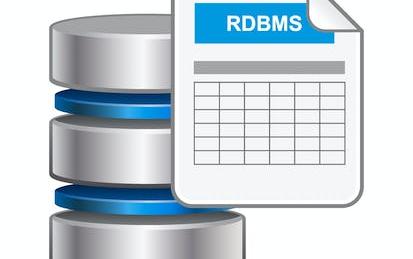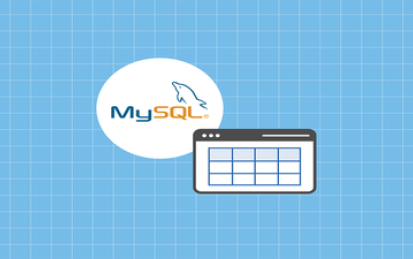

Our Courses

Database Architecture, Scale, and NoSQL with Elasticsearch
In this final course, you will explore database architecture, PostgreSQL, and various scalable deployment configurations. You will see how PostgreSQL implements basic CRUD operations and indexes, and review how transactions and the ACID (Atomicity, Consistency, Isolation, Durability) requirements are implemented. You’ll learn to use Elasticsearch NoSQL, which is a common NoSQL database and a supplement to a relational database to high-speed search and indexing.
-
Course by

-
 Self Paced
Self Paced
-
 10 hours
10 hours
-
 English
English

Using Ruby on Rails with Cloud SQL for PostgreSQL on Cloud Run
This is a self-paced lab that takes place in the Google Cloud console. In this lab, you'll learn how to deploy a new Ruby on Rails application using Google Cloud SQL for PostgreSQL on Cloud Run.
-
Course by

-
 Self Paced
Self Paced
-
 1 hour
1 hour
-
 English
English

Working with Subqueries in SQL
Welcome to this project-based course, Working with Subqueries in SQL. In this project, you will learn how to use SQL subqueries extensively to query tables in a database. By the end of this 2-and-a-half-hour-long project, you will be able to use subqueries in the WHERE clause, FROM clause, and the SELECT clause to retrieve the desired result from a database. In this project, we will move systematically by first introducing the use of subqueries in the WHERE clause. Then, we will use subqueries in the FROM and SELECT clause by writing slightly complex queries for real-life applications.
-
Course by

-
 3 hours
3 hours
-
 English
English

PostgreSQL for Everybody
Across these four courses, you’ll learn how to use the PostgreSQL database and explore topics ranging from database design to database architecture and deployment. You’ll also compare and contrast SQL and NoSQL approaches to database design. The skills in this course will be useful to learners doing data mining or application development.
-
Course by

-
 Self Paced
Self Paced
-
 English
English

Data Engineering Capstone Project
Showcase your skills in this Data Engineering project! In this course you will apply a variety of data engineering skills and techniques you have learned as part of the previous courses in the IBM Data Engineering Professional Certificate. You will demonstrate your knowledge of Data Engineering by assuming the role of a Junior Data Engineer who has recently joined an organization and be presented with a real-world use case that requires architecting and implementing a data analytics platform. In this Capstone project you will complete numerous hands-on labs.
-
Course by

-
 13 hours
13 hours
-
 English
English

JSON and Natural Language Processing in PostgreSQL
Within this course, you’ll learn about how PostgreSQL creates and uses inverted indexes for JSON and natural language content. We will use various sources of data for our databases, including access to an online API and spidering its data and storing the data in a JSON column in PostgreSQL. Students will explore how full-text inverted indexes are structured. Students will build their own inverted indexes and then make use of PostgreSQL built-in capabilities to support full-text indexes.
-
Course by

-
 Self Paced
Self Paced
-
 16 hours
16 hours
-
 English
English

Build and Execute MySQL, PostgreSQL, and SQLServer to Data Catalog Connectors
This is a self-paced lab that takes place in the Google Cloud console. In this lab you will explore existing datasets with Data Catalog and mine the table and column metadata for insights.
-
Course by

-
 Self Paced
Self Paced
-
 1 hour
1 hour
-
 English
English

Database Design and Basic SQL in PostgreSQL
This first course in PostgreSQL for Everybody explores the use of SQL in the PostgreSQL environment and introduces SQL techniques and commands. This course also explores data modeling and database relationships, while introducing hands-on assignments to work within PostgreSQL.
-
Course by

-
 Self Paced
Self Paced
-
 English
English

Database Design and Basic SQL in PostgreSQL
In this course you will learn more about the historical design of databases and the use of SQL in the PostgreSQL environment. Using SQL techniques and common commands (INSERT INTO, WHERE, ORDER BY, ON DELETE CASCADE, etc) will enable you to create tables, column types and define the schema of your data in PostgreSQL. You will learn about data modeling and how to represent one-to-many and many-to-many relationships in PostgreSQL.
-
Course by

-
 14 hours
14 hours
-
 English
English

Introduction to Relational Databases (RDBMS)
Are you ready to dive into the world of data engineering? In this beginner level course, you will gain a solid understanding of how data is stored, processed, and accessed in relational databases (RDBMSes). You will work with different types of databases that are appropriate for various data processing requirements. You will begin this course by being introduced to relational database concepts, as well as several industry standard relational databases, including IBM DB2, MySQL, and PostgreSQL.
-
Course by

-
 Self Paced
Self Paced
-
 19 hours
19 hours
-
 English
English

Data Warehouse Concepts, Design, and Data Integration
This is the second course in the Data Warehousing for Business Intelligence specialization. Ideally, the courses should be taken in sequence. In this course, you will learn exciting concepts and skills for designing data warehouses and creating data integration workflows. These are fundamental skills for data warehouse developers and administrators. You will have hands-on experience for data warehouse design and use open source products for manipulating pivot tables and creating data integration workflows.
-
Course by

-
 Self Paced
Self Paced
-
 62 hours
62 hours
-
 English
English

Database Management Essentials
Database Management Essentials provides the foundation you need for a career in database development, data warehousing, or business intelligence, as well as for the entire Data Warehousing for Business Intelligence specialization. In this course, you will create relational databases, write SQL statements to extract information to satisfy business reporting requests, create entity relationship diagrams (ERDs) to design databases, and analyze table designs for excessive redundancy.
-
Course by

-
 Self Paced
Self Paced
-
 123 hours
123 hours
-
 English
English

Relational Database Support for Data Warehouses
Relational Database Support for Data Warehouses is the third course in the Data Warehousing for Business Intelligence specialization. In this course, you'll use analytical elements of SQL for answering business intelligence questions. You'll learn features of relational database management systems for managing summary data commonly used in business intelligence reporting. Because of the importance and difficulty of managing implementations of data warehouses, we'll also delve into storage architectures, scalable parallel processing, data governance, and big data impacts.
-
Course by

-
 Self Paced
Self Paced
-
 71 hours
71 hours
-
 English
English




